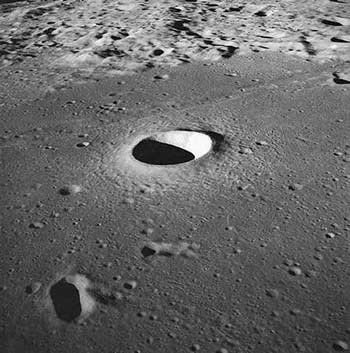The moon. Huh. What is it good for? Absolutely nothing.
At least, not any more.
Before I really get going, let's take a moment and appreciate how
special our moon is. Look at all the other inner planets. How many
moons does Mercury have? Zero. Venus? Nada. Mars? Two, but come on,
they're just rinky-dink captured asteroids and don't count for
nothing.
But Earth? A big fat moon, a whopping 27% of the width of our planet!
You don't get a moon like that by accident. No, wait, that's exactly
how you get one: models suggest that in the early solar system a
Mars-sized planetoid slammed into a baby Earth, tearing a chunk out of
it and making our gorgeously big satellite.

Back in the day, our moon served as the Earth's galactic goalkeeper.
See all those giant craters on the surface? Be glad all that space
stuff slammed over there instead of over here. But nowadays the solar
system is much quieter, and the need for an orbiting defense platform
isn't so urgent.
Take away the moon, and what would happen? The tides - a very visible
reminder of the weak but relentless tug of gravity - would get cut in
half (the other half comes from the sun). The interaction of the Earth
and the moon via the tides also causes something imperceptible: over
millions of years, the moon steadily moves further away while the
Earth's spin slows. After eons the Earth would be tidally locked - one
side permanently facing our satellite. So take away the moon and that
problem sorts itself out.
Oh, yeah, and no more eclipses, which would be a bummer.